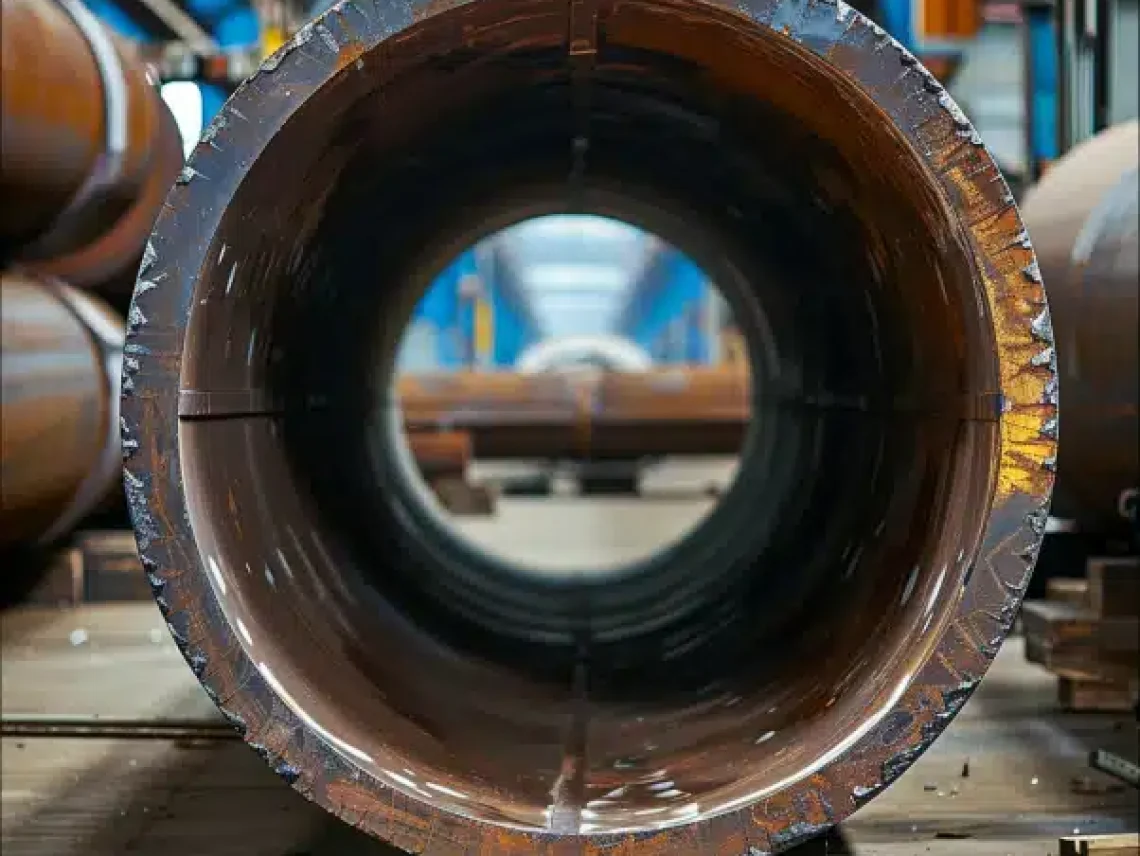Unlocking the Formula for Thin Wall Pressure Vessels

Table of Contents
ToggleKey Factors in Thin Wall Pressure Vessel Design
Choosing the right material is paramount in thin-wall pressure vessel design. Therefore, factors such as strength, corrosion resistance, and cost must be carefully weighed to ensure optimal performance and durability. Moreover, selecting the appropriate material plays a crucial role in maintaining structural integrity under varying conditions.
Impact of pressure and temperature variations
Thin-wall pressure vessels are subjected to varying working conditions, including fluctuations in pressure and temperature. As a result, understanding how these factors affect overall vessel performance is essential for designing equipment that can withstand the rigors of real-world industrial operations. Furthermore, accounting for these variations helps engineers develop vessels that meet safety and efficiency standards.
Importance of protection factors in layout calculations
Safety is paramount in pressure vessel layout, and thus, incorporating adequate protection factors into design calculations is essential to ensure vessels remain within safe operating limits under all conditions. In addition, engineers must consider uncertainties in fabrication, production tolerances, and operational conditions. By doing so, they can effectively mitigate the risk of failure.
The Formula for Thin Wall Pressure Vessels
Derivation of the thin wall pressure vessel components
The formula for calculating the maximum allowable pressure in a skinny wall pressure vessel is derived from principles of elasticity and pressure evaluation. By considering the vessel’s geometry, fabric homes, and working situations, engineers can decide the maximum pressure that the vessel can accurately face without failure.
Variables involved inside the formula are defined in detail
The skinny wall pressure vessel components take into consideration diverse parameters, which include vessel radius, wall thickness, material properties, and working pressure. Each of those variables performs a vital role in determining the vessel’s most allowable pressure and should be cautiously taken into consideration for the duration of the layout manner.
Practical packages and obstacles of the method
While the thin wall pressure vessel system gives treasured insights into vessel layout, it isn’t without barriers. Engineers need to cautiously examine the applicability of the system to particular design scenarios and don’t forget factors such as manufacturing tolerances, cloth variability, and operating situations while the use of formulation to layout vessels.
Need a reliable partner?
FAQ’s
What are the benefits of the use of thin wall pressure vessels over thick wall vessels?
Thin wall pressure vessels offer several benefits over their thick wall counterparts. Firstly, they’re lighter in weight, making them best for packages in which weight reduction is important, which includes aerospace or car industries. Additionally, skinny wall vessels commonly have a higher energy-to-weight ratio, allowing them to withstand excessive pressures whilst minimizing material usage.
How do you decide the appropriate wall thickness for a skinny wall pressure vessel?
Determining the perfect wall thickness for a skinny wall pressure vessel involves thinking about numerous factors, together with the fabric houses, operating pressure, and protection necessities. Engineers generally use mathematical formulas and computational tools to analyze pressure and pressure distributions inside the vessel and make certain that the wall thickness is sufficient to resist the predicted loads without failure.
Can skinny wall pressure vessels be custom-designed to fulfill precise mission requirements?
Yes, thin wall pressure vessels can be customized to satisfy a huge variety of venture requirements. Manufacturers like Red River LLC offer flexible layout options to deal with numerous programs, including custom sizing, cloth choice, and further features along with internal coatings or insulation.
How do you ensure the protection and compliance of skinny wall pressure vessels?
Selecting the proper cloth is essential in thin wall pressure vessel layout to ensure overall performance and sturdiness. Factors to don’t forget to include the vessel’s running environment (e.g., temperature, pressure, corrosive materials), mechanical homes (e.g., power, ductility, fatigue resistance), and fee. Common materials used for thin wall pressure vessels include various grades of stainless steel, carbon metallic, and specialized alloys, each providing precise blessings depending on the utility necessities.
How do you ensure the protection and compliance of skinny wall pressure vessels?
Ensuring the protection and compliance of skinny wall pressure vessels entails rigorous testing, exceptional manipulation measures, and adherence to enterprise standards and guidelines. Manufacturers like Red River LLC enforce stringent exceptional assurance tactics during the layout, fabrication, and trying out stages to verify that vessels meet or exceed relevant standards, inclusive of the ones set by the American Society of Mechanical Engineers (ASME). Additionally, normal inspections, protection, and adherence to running recommendations are critical to ensure the continuing safety and integrity of pressure vessels at some point in their provider life.
Table of Contents
ToggleRelated Blog Post
- What is the Barlow's formula?
- What is the theory of pressure vessels?
- What is pressure vessel failure theory?
- How do you calculate pressure vessels?
- What are the stresses in thick pressure vessels?
- What is the thinning allowance for pressure vessels?
- How do you test the thickness of a pressure vessel?
- What is the minimum wall thickness for a pressure vessel?
- How do you calculate the thickness of a pressure vessel wall?
- When the diameter of pressure vessel is 15 times the wall thickness?
Solutions
In the realm of industrial solutions, Red River emerges as a pioneer, offering a diverse range of custom-engineered products and facilities. Among our specialties is the design and production of Custom/OEM Pressure Vessels, meticulously crafted to meet individual client requirements, ensuring performance under various pressure conditions. Our expertise extends to the domain of prefabrication, where Red River leads with distinction.
The company excels in creating prefabricated facilities, modules, and packages, reinforcing its stance as a forerunner in innovation and quality. This proficiency is further mirrored in their Modular Skids offering, where they provide an array of Modular Fabricated Skid Packages and Packaged equipment. Each piece is tailored to client specifications, underlining their commitment to delivering precision and excellence in every project they undertake.
